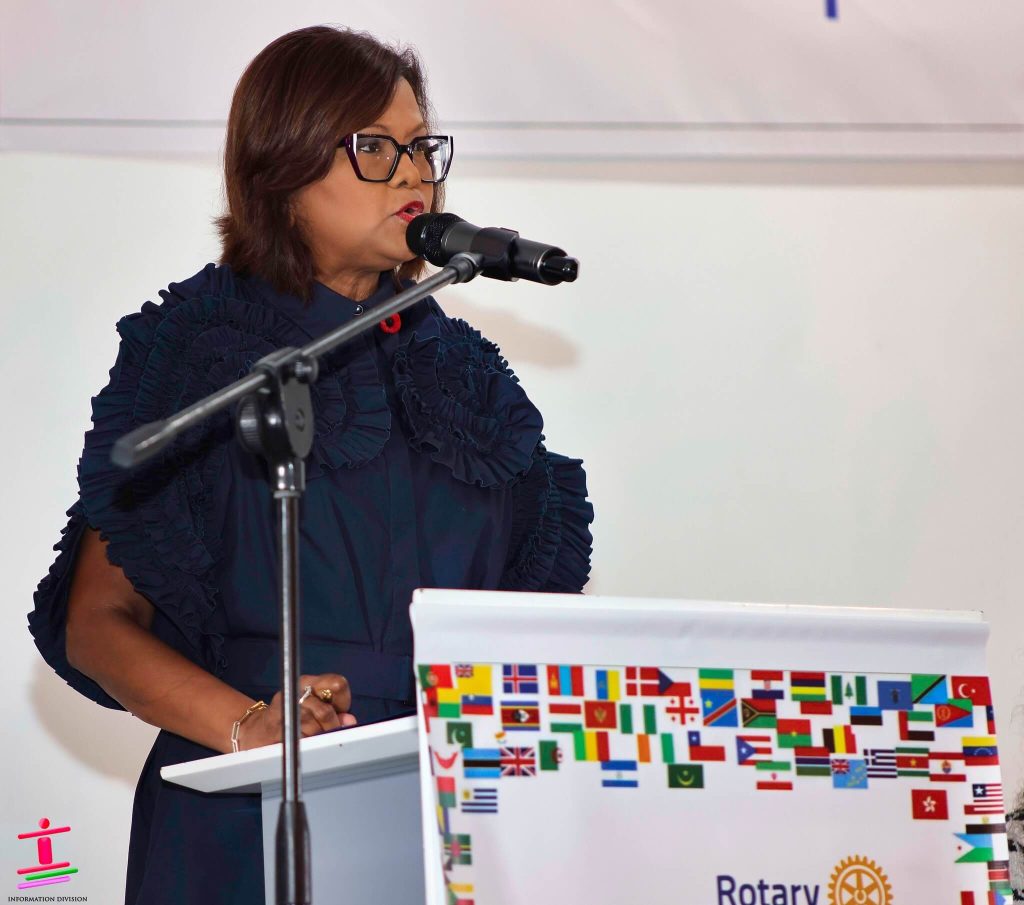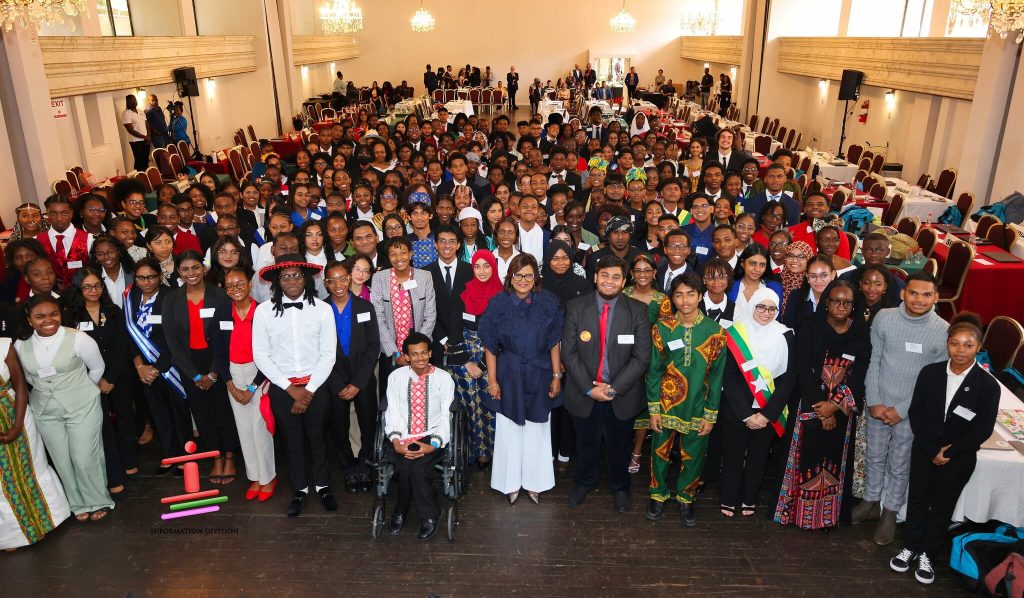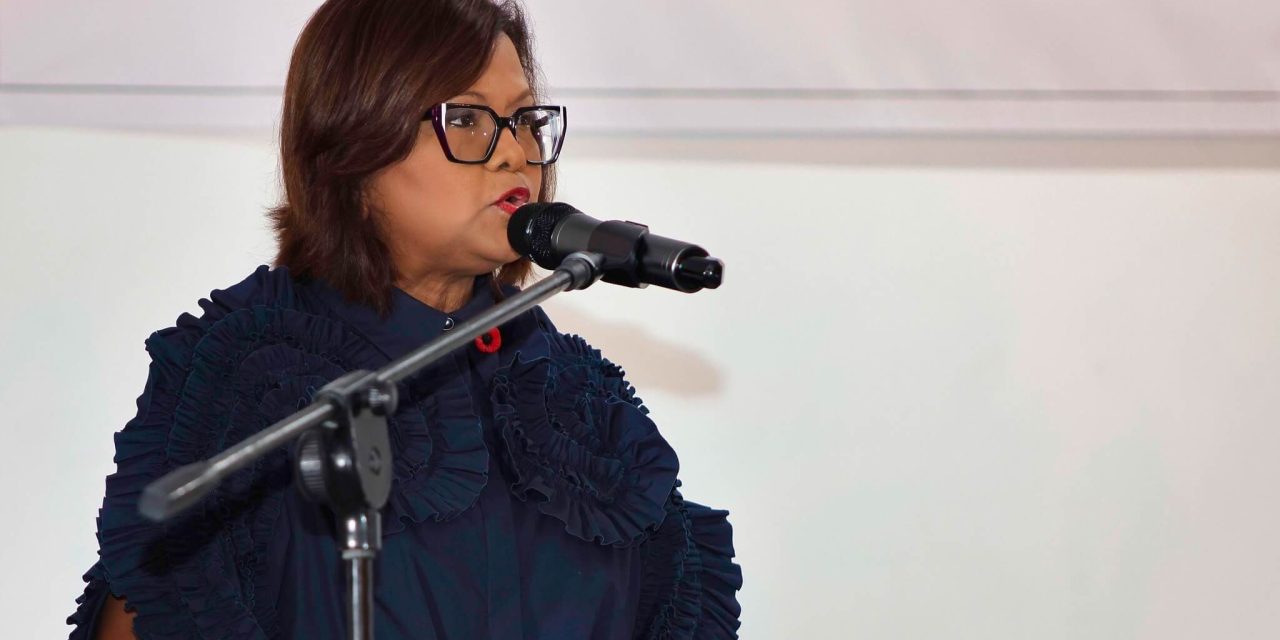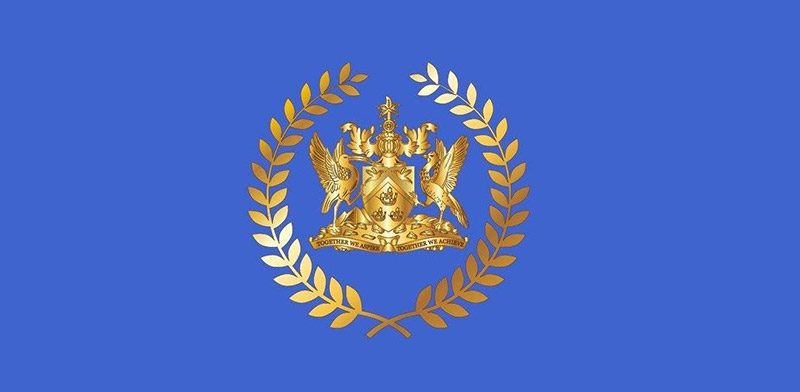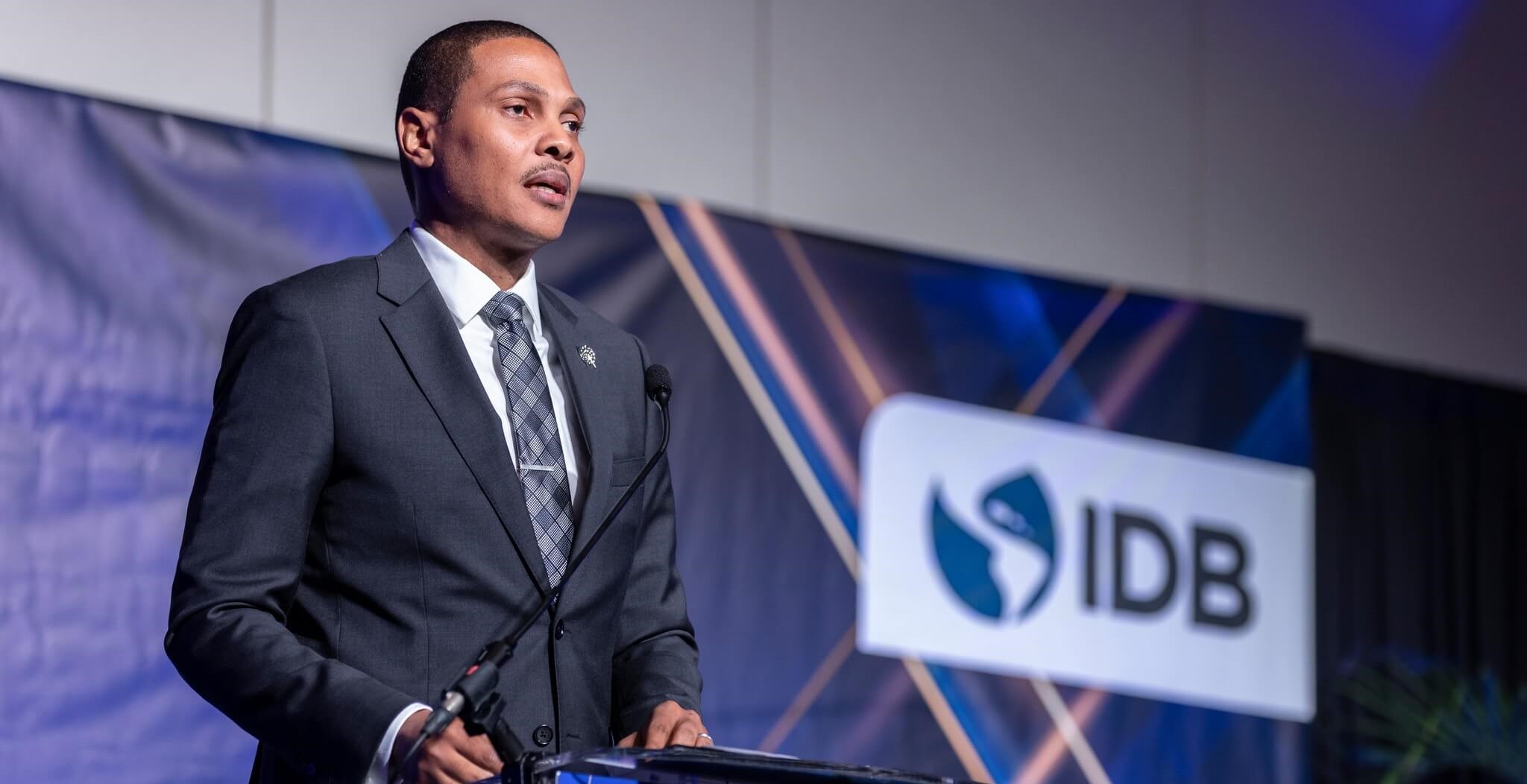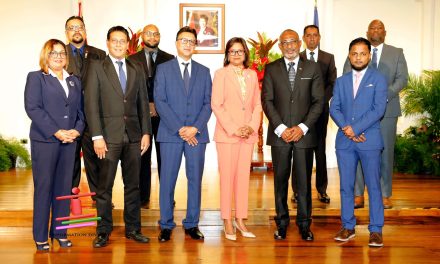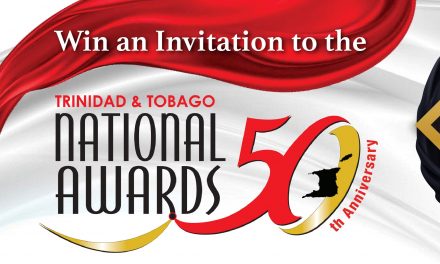Good morning.
I am delighted to join you today to open this 25th edition of the Model United Nations, hosted and organised so faithfully each year by the Rotary Club of Central Port of Spain. What a remarkable milestone, and what a privilege it is to celebrate it with you.
‘To model’ means ‘to follow’ or ‘to imitate’, and one of the ideas behind the hosting of this Model United Nations programme is to have its participants follow or imitate the workings of the United Nations. And so, one of the questions which participants in the programme need to ask themselves, is what exactly is it that I am following or imitating as I participate in the programme? Who is this ‘United Nations’ that I am going to be ‘modelling’?
If we do a ‘Google search’ or ask ‘Chat GPT’ this question, the answer we get is that the United Nations is (as we have heard this morning) an international organization founded in 1945 by 51 countries to maintain global peace and security, develop friendly relations among nations, and promote social progress, human rights, and better living standards. If we do a little more research, we will learn that the UN was founded following the devastation of World War II, in order to prevent future global conflict. We will discover that, at a Conference held between April to June in 1945 in San Francisco in the United States, representatives of 50 nations drafted and signed the United Nations Charter, and thereby created a new organization “to save succeeding generations from the scourge of war.” We will also learn that the UN in fact succeeded an earlier organization called “The League of Nations”, which had been created in 1919 after World War I in order to prevent another World War, but which failed in its mission. And we will discover that The League formally transferred its assets to the UN in April 1946; that the UN officially came into existence on the 24th of October 1945; and that today, it has (as we have heard) 193 Member States.
What all of this tells us, is that the United Nations came about as a result of a decision taken by countries of the world to never again permit a world war. It is the result of a decision taken to maintain international peace and security, through the collective action of its Member States. The United Nation’s core purpose, is (as we have heard) the peaceful resolution of disputes. It achieves its purpose by promoting friendly relations among nations. It fosters international cooperation in solving economic, social, cultural, and humanitarian problems, and in upholding human rights and fundamental freedoms for all of the Earth’s citizens. It serves as a centre for harmonizing the actions of nations in pursuit of these shared goals. In a word, the United Nations is about maintaining peace.
That is the organization, and these are the goals that, as participants in this Model United Nations programme, you are going to be called upon to follow or imitate. You are going to be called upon to follow or to imitate, pathways to peace.
Peace is something that is becoming increasingly elusive in today’s world. Today, in almost every continent on Earth, we see the brutality and the horror of war. Major ongoing wars and conflicts at this time include the Russia-Ukraine war, the conflict in Sudan, the Syrian civil war, and the Yemeni civil war. Other significant conflicts of the day involve gang violence in Haiti, the conflict in Myanmar, and the Israeli-Palestinian conflict, which includes ongoing hostilities in Gaza and southern Lebanon. This year’s Model United Nations programme therefore comes at a critical time in the affairs of the world. By immersing its participants in the workings of the United Nations, it exposes young people – students from schools across Trinidad and Tobago and the region – to pathways to peace. And, by exposing young people to pathways to peace, it enhances the chances that, as they emerge from the programme, these young people will themselves become proponents of peace in their own individual fields of endeavour. It improves the prospects that these young people will help create a world in the future, in which the wars and conflicts of today are resolved, and become things of the past.
The true impact of this programme will be felt after its participants have completed it. It will be felt in the ways in which its participants continue, long after the programme is over, to follow and to imitate, pathways to peace. The challenge to participants in this programme, is not only to master the skills of research and public speaking that are required in order to succeed in the programme. The challenge to participants is also to apply the lessons learned during the programme, to achieve peace in the places and in the communities which they inhabit.
This is a difficult challenge. One of the difficulties which participants will face in following and imitating pathways to peace in the places and in the communities which they inhabit, is the fact that, as I have said, there are wars and conflicts of all kinds, all around us. It will be difficult for them, in the communities which they inhabit, to sell ideas of peaceful and collaborative co-existence, when so many examples of the exact opposite abound. Another challenge they will face, particularly in Trinidad and Tobago, is the general tone of discourse in our society of late, which is often caustic and corrosive. Participants emerging from out of this year’s programme will have to contend with the widespread use of language in the public space that tends more often to divide and tear down, than it does to heal divisions and to build up – language that is antithetical to the values and the core purpose of the United Nations.
Because of matters such as these, it will be difficult for participants in this year’s programme to apply, in the places and in the communities which they inhabit, the lessons learned during the programme. The environment which they inhabit is, by reason of these matters, an environment that is hostile to following and imitating pathways to peace. But ‘difficult’ does not mean ‘impossible’. It simply means that what you are reaching for is valuable enough to require great effort. Difficult situations are not a dead end, but rather a test of persistence, resilience, and effort.
I believe in the young people of our country and of our region. I believe in their capacity to do things and to go to places which my own generation has not done and to which my own generation has not gone. I believe in our young people’s ability to tackle and to solve the intractable problems of our time, one small step at a time. A seed pushes through heavy soil and darkness before it ever sees the sun. In the same way, the strength of our nation’s and of our region’s young people is revealed when they keep going, even when the path feels dark and heavy. The invitation that this year’s programme extends to all of its young participants, is to do precisely that: to keep going – to keep following and imitating pathways to peace – even when the environments which you inhabit feel hostile to the enduring peace which you are trying to accomplish. And I believe that you can do that. In fact, the plain and simple truth is that unless you do that, the whole world runs the risk of plunging itself into yet another World War; and the United Nations itself will be at risk of becoming another “League of Nations”, which fails in its mission. These are not risks which we should be prepared to run. These are the risks against which you, our young participants in this year’s programme, have the sacred and the solemn duty to guard.
For twenty-five years, this programme has engaged curious young minds across the country, and now, across the region, developing in them valuable skills in diplomacy, research, public speaking, negotiation and collaboration. For twenty-five years it has enabled its young participants to unlock their confidence, strengthen interpersonal skills and discover hidden talents, providing a clear pathway to realising their fullest potential. Since inception, over two thousand students have benefitted from this powerful initiative. Many of those alumni now serve in leadership roles across diverse fields in our country and in the region, a record of which Rotary can be justifiably proud.
Permit me therefore to express, unreservedly, my admiration and gratitude to the Rotary Club of Central Port of Spain for its steadfast dedication to this initiative and for ensuring its continued success over the past quarter century. Your work stands as testament to the Rotary motto of ‘Service above Self’ and reflects its longstanding investment in young people, and its belief in the power of education to transform lives. By preparing the next generation of leaders, though participation in this programme, to be resourceful, compassionate and capable, the Rotary Club of Central Port of Spain has helped, and is helping, to guide our nation, our region, and indeed our world, towards a brighter and more peaceful future. For this, you have my admiration and my thanks.
And so, as we celebrate twenty-five (25) years of the Rotary Club of Central Port of Spain’s Model United Nations programme, let us honour this rich legacy by continuing to invest in our youth. Let us continue to support programmes that equip young people with the skills to communicate effectively, work well with others and contribute meaningfully to their communities and nations.
This year’s conference is particularly noteworthy. With 210 participants, double the usual number, and the inclusion of delegates from Montserrat, Antigua, St. Vincent, Curaçao and Grenada, the event has taken on a truly regional character. I warmly welcome our visiting delegates, and hope that your experience here will strengthen the bonds of friendship and cooperation across our Caribbean family. By working together in this Model United Nations, you deepen the bonds of friendship and solidarity that link our Caribbean nations.
My dear young people, I would like to congratulate and commend you for choosing to take part in this simulation and for expanding your knowledge, skillset and understanding of the world around you.
I hope that this experience inspires you to see yourselves not only as students or representatives, but as peacemakers capable of creating a world in which fairness, justice, and respect are the norm. A world in which we all would want to live.
Thank you, and I wish you every success in your conference.
